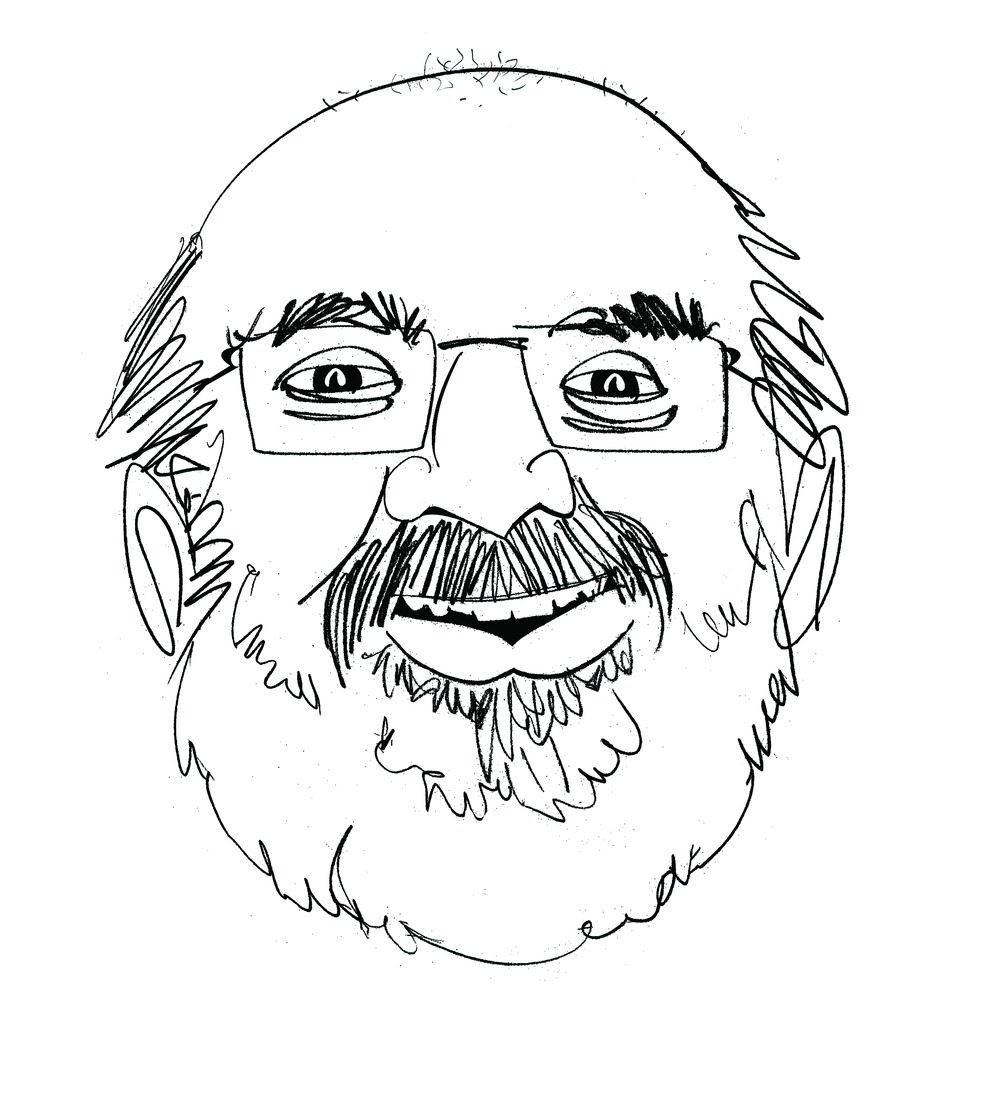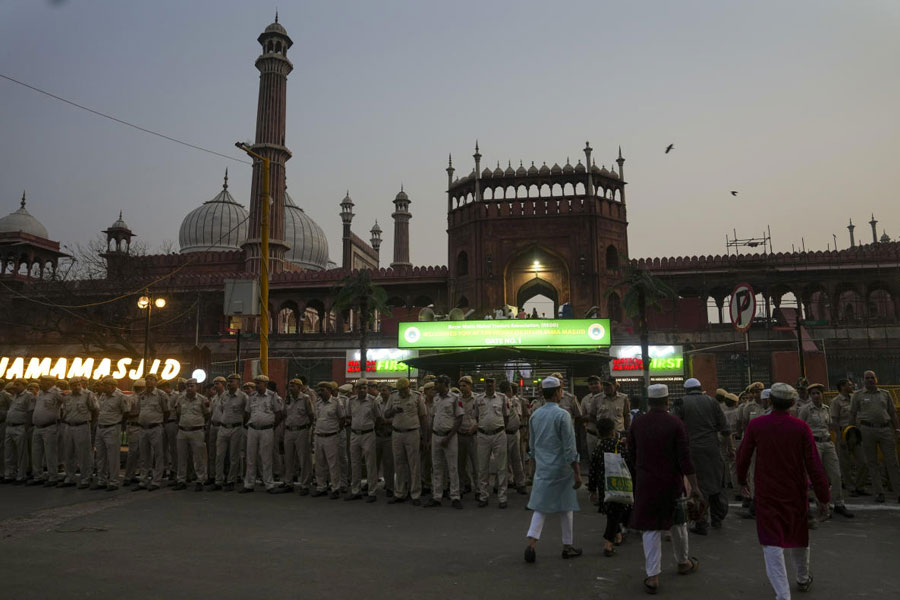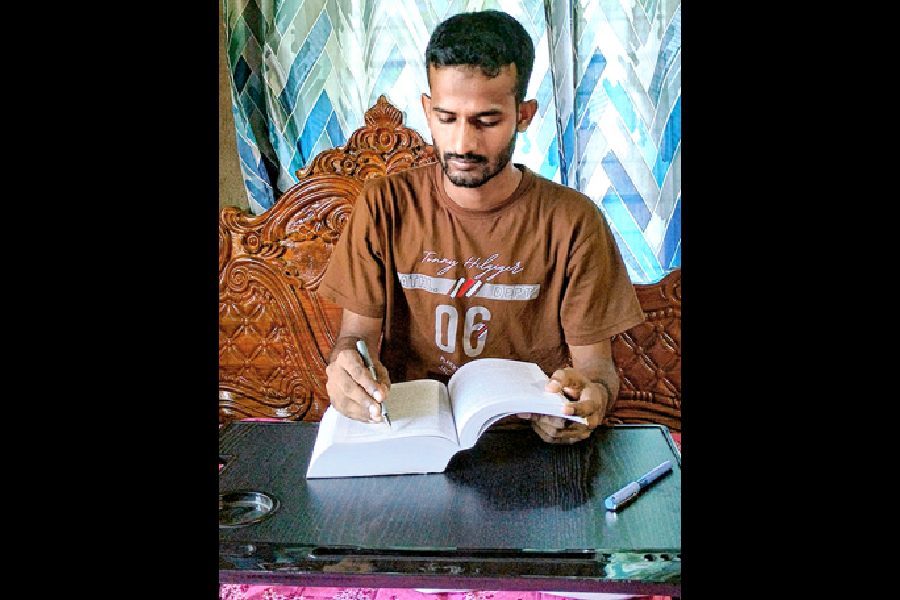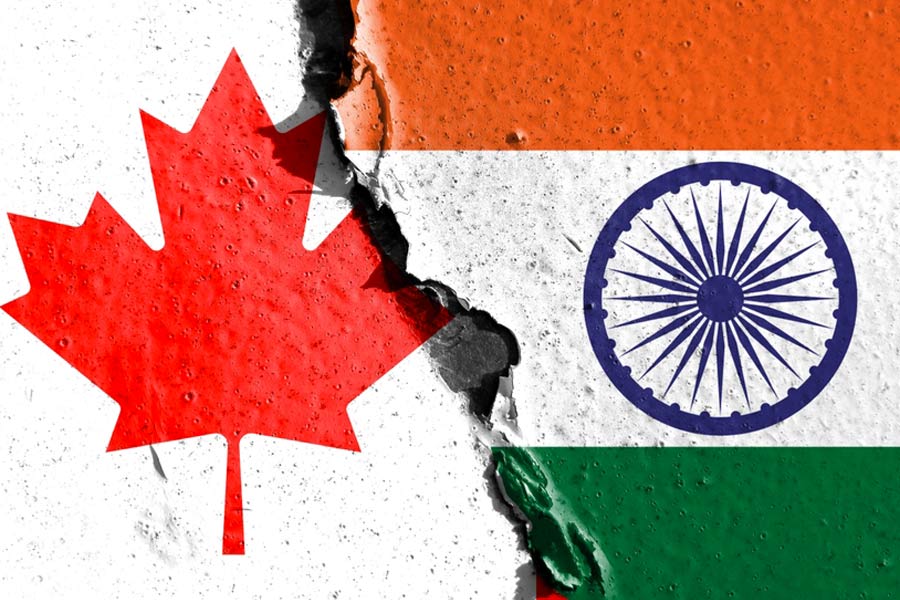
Mahatma Gandhi smiles at me as I enter the room. The larger-than-life portrait - sketched on the side of a floor-to-roof wooden cabinet - is a bit of a surprise in a Marxist minister's office. But, then, so is the occupant.
Kerala's finance minister T.M. Thomas Isaac ushers me to a chair by a conference table in his office on the second floor of a building in the secretariat complex of the Kerala government in Thiruvananthapuram. Resplendent in a bright yellow Fabindia kurta and a white dhoti, he takes a chair on the other side of the table, and looks expectantly at me.
I get down to brass tacks. Isaac's party, the Communist Party of India (Marxist), or CPI(M), has criticised the recently-passed Goods and Services Tax (GST) Bill. Kerala, on the other hand, is believed to be happy with what the bill has in store for it. Isn't there a contradiction here?
There is none, Isaac insists. "We (the states) had surrendered our right to independently change tax rates when value-added tax (VAT) was introduced many years ago," Isaac, 63, says. "The CPI(M) was critical of VAT then and is critical of GST now. The party feels that both these tax regimes undermine the federal nature enshrined in our Constitution," he explains.
But when it comes to the state, it's quite another matter. Isaac admits that Kerala stands to gain from GST. "Being a consumer state with a service orientation, Kerala hopes to benefit from the introduction of GST," he argues.
Kerala certainly needs a revenue boost. Isaac, who came out with a white paper on the state's finances during the previous United Democratic Front government led by Oommen Chandy, says that the fiscal deficit in the current financial year is expected to top Rs 13,000 crore.
"I have the dubious distinction of being the finance minister of a state that has the highest revenue deficit," quips the CPI(M) central committee member and former professor of economics at the Centre for Development Studies (CDS) in Thiruvananthapuram.
A four-time MLA since 2001, Isaac was the finance minister in the Left Democratic Front (LDF) government led by V.S. Achuthanandan from 2006 to 2011. Left economist Prabhat Patnaik says that Isaac, as the LDF's finance minister, had managed to pull the state out of "dire straits" when it was last in power.
"Isaac believes in raising revenue, which not many finance ministers do. It requires courage to do so because it makes finance ministers unpopular among those whose tax burden goes up," says Patnaik, professor emeritus at the Jawaharlal Nehru University in New Delhi.
But the minister seems to be happy upping taxes. In his new budget, presented in July, he introduced a "fat tax" on junk food - a first for any state other than Bihar where snacks like samosas are now taxed. "The idea is not to increase revenues but to create awareness among people about unhealthy eating habits," he says.
Isaac speaks softly and slowly, and like a good teacher pauses every now and then to make sure that his words are being jotted down. Occasionally, he glances at my notes, making me feel like a nervous student in class.
But he ends up devoting over an hour to the conversation, ignoring his mobile phone which rings intermittently. Just once, when he finds that the caller is a fellow minister in the Pinarayi Vijayan Cabinet, he takes the call.
Isaac is known for his dry humour. During the run-up to the state Assembly elections in May - in which the LDF romped home - a Marxist ideologue no longer associated with the CPI(M) had remarked that Isaac was a better chief ministerial candidate than Achuthanandan or Vijayan. "With friends like these, who needs enemies," Isaac had retorted wryly. There were already two rival groups in the CPI(M) - led by the last LDF CM and the current one. Clearly, Isaac is not keen to start his own sect.
Isaac - who is from Kottapuram in Thrissur - was drawn to Communism when he was studying economics at Maharaja's College in Ernakulam. He recalls his college days with fond pride - the actor Mammootty was his contemporary in college. And that was when the Students' Federation of India (SFI), the CPI(M) students' wing, won college elections for the first time.
Legend has it that while he was in college, he participated in a strike called by workers of a coconut fibre extraction unit owned by his father. He went on to lead the SFI, and was its state president in 1979. He was briefly arrested during the Emergency.
He did his doctorate from CDS, and mentions that he was friendly with the writer, Amitav Ghosh, who was in CDS for a spell in the early Eighties. Currently, Isaac is an honourary fellow at the centre. "I do not take formal classes anymore, but the informal ones make me feel good," he says.
Isaac is not your archetypal Marxist. Active on the social media, he has gathered up 4.75 lakh "Likes" on his Facebook page. But along with support, he gets his fair share of criticism. Recently, he stirred up a mini furore when he went to the US to attend the wedding of one of his daughters.
Critics decried what they called "Communist double standards", pointing out that his daughter was marrying an American citizen. Isaac fought back valiantly, stressing that he and his wife (who now teaches in Ireland) were divorced 20 years ago, and their two daughters lived with their mother in the US. He also regretted that he had played only a very minor role in bringing them up.
"It wasn't a reply to those trolls but I felt that some unsuspecting people may believe this maligning campaign as true," he says.
Isaac, clearly, is a pragmatic man. He finds Union finance minister Arun Jaitley "knowledgeable" and describes him as a professional who believes in the spirit of give and take. But he pooh-poohs the National Democratic Alliance (NDA) government's claim that more money than ever is being given to states.
"If the states today are getting more funds, it has nothing to do with Narendra Modi or the NDA government. It is because the finance commission appointed by the previous government recommended that the share of tax payments to the states be increased," he says. "But if you take all the funds that come from the Centre to the states, you will find that the actual funds devolved to the states have marginally come down. This is because the NDA government has cut down the Centre's share in centrally sponsored schemes."
In Kerala, Isaac's stock is high. He has been a champion of people's participatory planning and played a pivotal role in putting together a conceptual framework for decentralisation, which devolved a fair share of decision making to local administrative bodies such as panchayats.
During his previous term as a legislator representing the Alappuzha Assembly constituency, he successfully pushed for a solid waste management plan for Alappuzha town, urging people to process their waste in their own backyards. The project worked out so well that it is now being hailed as a national model.
He has also been lauded for effectively handling the finances of the state. He ran innovative campaigns to shore up revenues year after year when he was finance minister during the last LDF regime.
But there has been discontent as well among sections of the people, who believe that he hasn't done enough to generate wealth. "It is very difficult to be the finance minister of Kerala because it is largely a middle-class society. To keep the Kerala model going, one has to tap the middle class for revenue which is politically difficult. It is easier for a person of the Left to be the finance minister of a state where there are large inequalities. Kerala does not have such large inequalities," says Patnaik.
Though Isaac has been successful in making all Kerala public sector units profitable, there are some who point out that his model was not followed in West Bengal.
Isaac believes that the Left Front (LF) government in West Bengal faced a resource crunch. He holds that the LF, which was ousted after 34 years in power, did not do as much as it could have done in the social sectors because of this resource crunch.
"The tax-GDP ratio of West Bengal is one of the lowest in India. Inability to mobilise resources was a major issue in Bengal and it continues to be so," he says.
Another economist, also close to the Left, argues that a Left finance minister has to be good not only at managing finances but also in projecting an alternative ideological position. "Isaac has not been able to do it as yet, which is why he is still not Ashok Mitra," he says.
He is not. But Isaac is not complaining. After all, he has Gandhi smiling benignly at him all the time.
tetevitae
1970s: Isaac becomes involved in student politics. Holds posts in the Students’ Federation of India at college — Maharaja’s College, Ernakulam — district and state levels
1978: Awarded MPhil in economics and subsequently a doctorate in 1985 by JNU while at the Centre for Development Studies (CDS)
1997: Under the guidance of E.M.S. Namboodiripad, spearheads the People’s Planning Campaign initiated by the Left Democratic Front (LDF) government in Kerala. The campaign sought to take development and governance to the grassroots with large-scale mobilisation and involvement of ordinary people
2000: Joins electoral politics after teaching for many years at CDS
2001: Elected to the state legislature from Mararikkulam, and then again in 2006. Thereafter, elected from Alappuzha in 2011 and 2016
2016: Sworn in as finance minister in the Pinarayi Vijayan-led LDF government in Kerala. Was FM in the previous LDF government too
Makes headlines by introducing the ‘fat tax’ on junk food, the first such initiative in India. His Facebook posts are compiled into a book titled Facebook Diary











